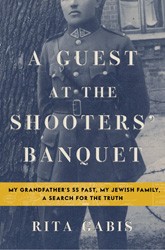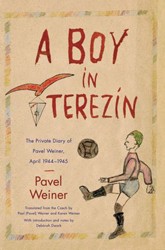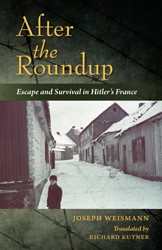Growing up in the shadow of the horrors that their parents faced, the children of Holocaust survivors struggle to understand the past and find a way to move forward. Rita Goldberg’s beautifully written memoir is a fascinating account of one woman coming to terms with her parents’ legacy.
Rita was born in Basel, Switzerland in 1949. Her mother, Hilde, was from a German family that fled to Amsterdam as the Nazis came to power. The family was very close to Anne Frank’s; Hilde was friend’s with Anne’s sister, and Otto Frank was Rita’s godfather. When the Nazis invaded Holland, Hilde and her brother escaped to the country and began working with the resistance in Belgium. Rita’s father, Max, was from Basel. He finished medical school, but was not allowed to practice under Swiss law because his parents were immigrants. Although Switzerland remained neutral during the war, Max faced anti-Semitism. He ended up working for the United Nations Relief and Rehabilitation Administration, working in a displaced persons camp at Bergen-Belsen where he met Hilde. The family eventually made its way to the United States but returned to Germany when Max served as a physician in the American army.
Rita’s mother never hid her past, often telling her daughter that pure chance saved her from a one-way trip on a boxcar. Visits with Otto Frank and the few remaining family members in Europe heightened the impact of these tales. As a child, Rita’s nightmares often reflected her mother’s memories. Although Rita grew up, married, and had children of her own as well as a successful academic career, she still felt that all of her accomplishments paled when compared to the heroic deeds of her mother.
This book, based on the author’s extensive research and conversations with her parents, is an eloquent attempt to make sense of her experiences. As she says, “The world, for us, is always in crisis, and we fell the shadow of violent death always on us. We feel our unreality acutely in the good fortune of our growing up in this opulent country, where we have been educated to make choices freely. We feel we’re not quite entitled to that fortune, because of the chill that never leaves us, and so we work hard and are grateful. But we do notice the gaps, the gusty air that keeps us from feeling entirely at home.” The feelings expressed here demonstrate the conflicts that many children of survivors face. They love and admire their parents, and do their best to honor them by succeeding. At the same time, they know that they can never completely understand what their parents experienced and feel guilty as a result. In a sense, they live between two worlds and work hard to navigate the path that connects them. Rita Goldberg explores this with great sensitivity.
Related Content:





